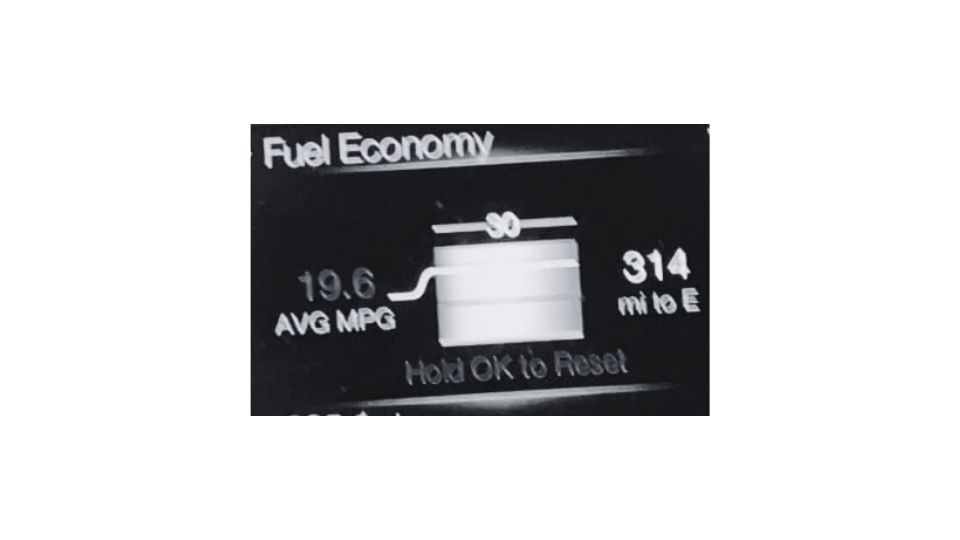The Ford F-150 pickup offers a variety of engine sizes to suit different needs, ranging from the high-performance 5.2L supercharged V8 to the more fuel-efficient 2.7 EcoBoost.
Many people wonder about the actual miles per gallon that can be achieved with a 2.7 EcoBoost engine.
Drawing on my own experience and thorough research, this article aims to provide an answer to this question regarding the MPG you can expect from a 2.7 EcoBoost F150. Let’s dive in.
Ford F150 2.7 Ecoboost Engine Brief Overview
The 2.7 Ecoboost engine for the Ford F-150 made its debut in 2015. With a displacement of 2.7 Litres, this V6 engine produces an impressive 325 horsepower and 400 lb.-ft. of torque.
It also boasts a maximum towing capacity of 10,100 lbs and a payload capacity of 2,480 lbs.
F150 2.7 Ecoboost MPG
Now, let’s look at the MPG of the 2.7 Ecoboost engine.
Claimed MPG
Ford claims that this engine can achieve up to 19 mpg in the city and 24 mpg on the highway, and combined miles per gallon of 21. These are pretty impressive numbers for such a powerful truck.
Real World MPG
Based on feedback from 15 other F150 2.7 Ecoboost owners and my own experience, It appears that the actual MPG of this engine is slightly lower than what Ford claims.
On average, we have observed a combined MPG of 18-19 in real-world driving conditions. Of course, there are factors that can affect this number such as driving style and whether you do a lot of city vs highway driving.
The highest real-world MPG I have seen was 24, which was achieved by a driver that mostly did highway driving. The lowest real-world MPG I saw was 16.
2.7 Ecoboost Miles Per Gallon Calculator
If you are looking to calculate the miles per gallon that you get with your F150 2.7 Ecoboost, here is a simple calculator for you:
Fuel Efficiency Calculator
Factors Affecting MPG on the Ford F150 2.7 Ecoboost:
As you know by now, there are a lot of factors that can affect the mileage you get from your F150. The most important ones are:
1. Driving Style
Your driving habits can significantly affect your average Miles per gallon. If you tend to drive aggressively and often go hard on the gas pedal, it’s likely that your MPG will be lower compared to someone who drives more cautiously.
2. Highway vs. City Driving
If your Pickup is primarily driven in the city with limited use on the highway, it is likely that your MPG will be lower compared to someone who frequently drives on the highway.
3. Weather and Climate
Research Found that cold weather can reduce fuel economy by up to 15%. The colder the temperature, the harder your engine has to work and burn more fuel.
You can expect your MPG to go down if you live in a region that experiences colder temperatures on average.
4. Weight & Towing
If you have a heavy load in your Pickup, it is likely that your MPG will go down. The reason for this is that it takes more power to move a heavy load than it does to move a light one.
You can expect your MPG to go down if you are hauling heavy loads on a regular basis.
Ford F150 2.7 Ecoboost MPG Tips
Let’s explore some ways to improve your Ford F150 2.7 Ecoboost’s fuel efficiency. Following these tips can help increase your MPG without compromising your vehicle’s performance.
Change Driving Style
First, avoid aggressive driving habits, such as sudden acceleration and braking, and adopt a smoother and more moderate driving style.
Do Your Service on Time
Regular vehicle maintenance, including oil changes, tire pressure checks, and air filter cleaning, is also crucial to keep your F150 running efficiently. Make sure to follow the manufacturer’s recommended maintenance schedule.
Remove Extra Weight
Optimizing your load is another way to improve fuel efficiency.
Consider removing unnecessary equipment or cargo to reduce the weight your F150 carries.
Additionally, using cruise control on long, steady stretches of road can help maintain a constant speed and improve fuel efficiency.
Reduce Idling Time
Limiting idle time can also conserve fuel. If you anticipate being stopped for more than a minute or two, consider turning off the engine to save fuel. Proper gear usage is important too.
If your F150 has a manual transmission, shift up at the right RPM to avoid unnecessary fuel consumption.
Use the “Eco Mode” Feature More
your F150 is equipped with Eco Mode. Use it to optimize various aspects of the vehicle’s performance to prioritize fuel efficiency.
Planning your routes efficiently and avoiding areas with heavy traffic or lots of stop-and-go situations can also help minimize unnecessary driving.

